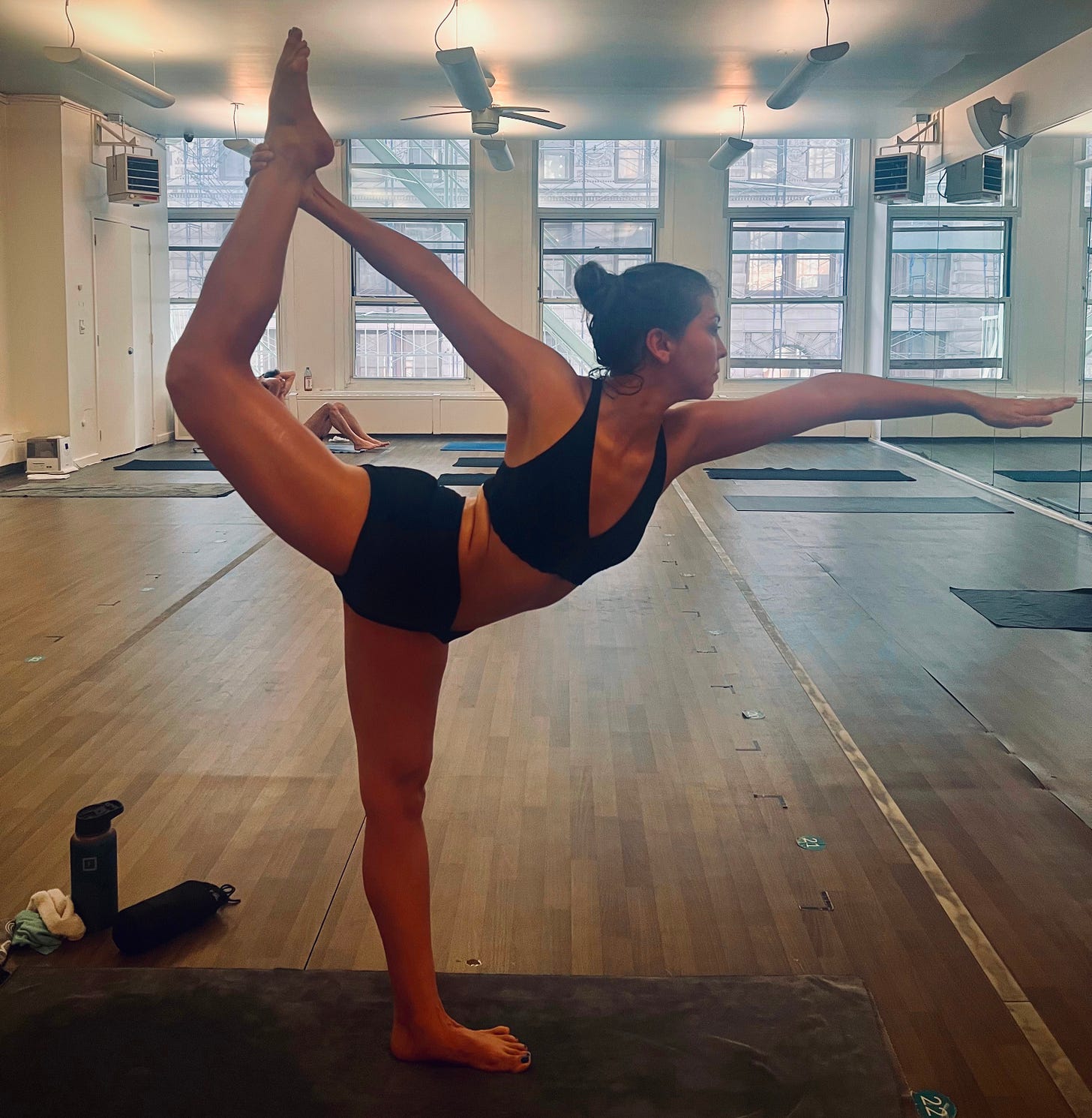So much suffering comes from trying to avoid suffering. Ironic, right? But it's kind of our thing. As humans, we’re wired to flinch at discomfort. The moment anything feels off emotionally, physically, socially, we instinctively try to fix it, numb it, or flee the scene entirely. We call it survival. But more often, it’s just avoiding feelings we were probably meant to feel.
What if that low-grade anxiety we all carry isn’t a sign that something’s wrong, but an invitation to grow? What if peace doesn’t come from staying comfortable, but from getting really good at being uncomfortable?
I recently fell down a YouTube rabbit hole with executive coach Joe Hudson. He helps people sit with their feelings. Not fix them. Not flee from them. Just feel them. He calls it “emotional fluidity,” and it’s surprisingly radical in a culture that treats feelings like weakness.
Joe says all choices aren’t logical, but emotional. The more we try to suppress or control our emotions, the worse choices we make. But if we welcome our emotions, we gain clarity in what we really want and how to get it.
Feeling your feelings sounds simple, but of course it’s slippery. Because sitting with sadness is one thing and being dragged into a depressive undercurrent is another. And when you've known the latter, it's hard not to brace against the former. But most feelings don’t want to drown us. They just want to be felt. Sometimes they even bring gifts. Wisdom. Insight. Or, if you’re a woman, your period.
Our kids already know how to do this. They feel what they feel and then move on. One minute they’re sobbing, the next they’re asking for snacks. No shame. No emotional hangover. But then we socialize it out of them. We reward emotional restraint and call it “maturity.” And soon, they’re just like us, shoving everything down and wondering why they’re tense all the time.
But parenting in times of big feelings is tricky. I start out wanting to validate my daughter’s feelings, but then her feelings stir up my feelings, and suddenly I want to scream, “Just stop it!” But if I can stay present with her and my own discomfort, even just for a moment, something usually shifts rather quickly in both of us. We move through it.
Of course, there’s a fine line between feeling an emotion and being hijacked by it. Something kids can’t learn until they have a fully formed prefrontal cortex. Honoring your internal world and having an emotional outburst is a line that feels uncomfortable, messy, vulnerable and it's where the real work happens. I’m convinced that learning to balance on that line is a superpower. And I’ve decided to get good at it. To welcome it even because it’s teaching me how to balance in difficult circumstances.
There is one area of my life where I have mastered that balance. I’ve practiced Bikram Yoga for 23 years now. It’s a 90-minute series of 26 postures in a room heated to 105 degrees, with no talking, no distractions, and no escaping unless you’re actively dying (and even then, they might suggest lying down and breathing through it). Most people think it’s a form of masochism. But for me, it’s been one of the greatest teachers of my life.
It’s not about the poses, it’s about what happens when you feel so uncomfortable you want to run out of the room. When your brain says, “Nope, I’m too hot, I can’t do this,” but your body picks up its foot anyway and you start kicking like hell until you’re perfectly balanced. That balance is found by surrendering into the uncomfortableness. And once you’re there and you hang on until it’s over, you feel super powerful. You can also feel dizzy and nauseous, then you just breathe until that passes, and you feel even more powerful. The discomfort washes over you like a wave. It’s intense, then it’s gone, then you’re stronger. You’re stronger because you felt those feelings, but didn’t allow them to convince you to give up.
My husband walks straight into discomfort like its happy hour, and someone just offered to buy him a drink. He’s run bars since his twenties, so navigating difficult conversations with difficult people is old hat. He’ll say the uncomfortable thing, sit in the awkwardness until it’s resolved, and go eat a sandwich like nothing ever happened.
When I started pre-production on my last film, I was doing all kinds of uncomfortable tasks, having all kinds of awkward conversations, and whining about every single one of them. “If you want to be a filmmaker, you have to embrace the suck,” he said. Embrace the suck? What? Okay, sure buddy, I thought. Now I realize he was modeling emotional fluidity. He wasn’t saying don’t feel the suck, he was saying embrace it. Give it a hug. Slap it on the back like an old friend.
I can see how much I’ve avoided the suck over the years and what it's cost me. Early in my career, I missed many opportunities simply because I didn’t want to ask the “wrong” question, assert a need that might inconvenience someone, or cause any awkwardness whatsoever. Oprah calls it “the disease to please,” and I had it bad. If there was a choice between my career growth and someone else’s convenience, I picked someone else’s convenience every time. Even when I didn’t know them or would never see them again.
Avoiding discomfort creates a whole new kind of discomfort, the kind where your entire life becomes a performance of pleasing, anticipating and adjusting around other people’s needs. And half the time those people don’t even want you to do that.
The other day, in the shower, I had this lightning-bolt thought: What if I really didn’t care what other people think?
Not in a “screw the world” kind of way. But in a calm, clear, this-is-who-I-am kind of way. What if I stopped editing myself for other people’s reactions and just said the thing? What if I showed up as my full, thoughtful, imperfect self and let people take it or leave it? I would never be unkind, but I would be bold, articulate, and irreverent.
That thought didn’t last long, but it felt like total freedom, and I saved it in an easily accessible place in my soul. A place where I know I am who I am for a reason. And if I’m doing my best according to me, the rest will sort itself accordingly. I think this might be the feeling of self-worth. And it's way more powerful than external validation. Something I hope to teach my daughter when she has a fully functioning prefrontal cortex.
Maybe being comfortable with discomfort could become my new superpower. Maybe real peace, real joy, doesn’t come from crafting the perfect circumstances, but from being able to sit in the mess and stay open anyway. To not overreact. To not stuff it down. To breathe through it like a yoga pose.
Maybe this whole season of life…motherhood, midlife, all of it, is just an invitation to stop resisting, and start embracing the suck. And maybe that’s what perimenopause is trying to teach me. But then I think, “get yourself some hormone replacement therapy, girl. You’re not that evolved.”
Ready to embrace all the emotions with us?
Join our mailing list to stay in the loop on upcoming events where we gather in real life, cocktails in hand, to talk about the mess, the growth, and all things no one warned us about. We’ll laugh, cry, and possibly overshare. That’s kind of our thing. Find out more at MomsAmongOtherThings.com
Follow us on Instagram for more honest conversations, behind-the-scenes mom moments, and unapologetic realness.
And don’t forget to listen and subscribe to our podcast, Mommy Has Questions, where we say all the things out loud that most people are just thinking.
Enjoying this substack? Consider pledging a subscription.







